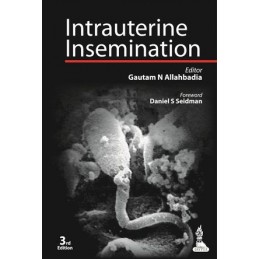- Reduced price

Order to parcel locker

easy pay


 Delivery policy
Delivery policy
Choose Paczkomat Inpost, Orlen Paczka, DHL, DPD or Poczta Polska. Click for more details
 Security policy
Security policy
Pay with a quick bank transfer, payment card or cash on delivery. Click for more details
 Return policy
Return policy
If you are a consumer, you can return the goods within 14 days. Click for more details
Intrauterine insemination (IUI), also known as artificial insemination, is a fertility treatment that uses a catheter to place washed sperm directly into the uterus. Its aim is to increase the number of sperm reaching the fallopian tubes and subsequently increase the chances of fertilisation (American Pregnancy Association).
The second edition of Intrauterine Insemination brings physicians and trainees fully up to date with the latest developments in the technique.
Divided into 48 chapters, this comprehensive guide covers every aspect of the procedure, from patient selection and clinical assessment of couples, to ovarian induction, predictors of ovarian response, modulation of sperm motility, and sperm banking. The final sections describe data management issues, sex pre-selection, and regulation of assisted reproductive technologies.
Key points
Data sheet
